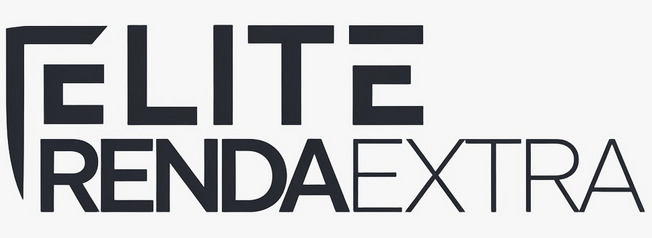Navigating personal finances in Canada can feel like a complex puzzle, especially when you’re juggling multiple debt payments each month. From credit card bills to lines of credit and personal loans, keeping track of different due dates, interest rates, and balances can be overwhelming and stressful. It’s a common situation for many Canadians seeking a clearer path toward financial stability.
If this scenario sounds familiar, you may have come across the term “debt consolidation loan.” It’s often presented as a powerful tool for managing debt, but what does it really entail, and is it a smart financial choice for your specific situation? Understanding the mechanics, benefits, and considerations of this option is the first step toward making an informed decision about your financial future.
What is a Debt Consolidation Loan in Canada?
At its core, a debt consolidation loan is a straightforward concept. It is a new, single loan that you take out to pay off several existing, smaller debts. Instead of managing multiple payments to various creditors each month, you are left with just one loan, one monthly payment, and one interest rate. This simplifies your financial life significantly.
Imagine you have outstanding balances on two credit cards, a store card, and a small personal loan. A debt consolidation loan would provide you with a lump sum of money large enough to pay off all four of those debts in full. Once they are paid, you close those old accounts and focus solely on repaying the new, larger loan over a set period. This strategy is designed to streamline your obligations and, in many cases, reduce the total amount of interest you pay over time.
It’s important to distinguish this from other debt relief options. A debt consolidation loan is not a debt settlement program or a consumer proposal. You are not negotiating to pay back less than you owe; you are simply restructuring your existing debt into a more manageable format.
The Key Benefits of Consolidating Your Debt
For many Canadians, the advantages of a debt consolidation loan extend beyond mere convenience. When structured correctly, it can be a strategic move that provides tangible financial benefits.
A Single, Simplified Monthly Payment
The most immediate and noticeable benefit is simplicity. Juggling different payment dates for various creditors can lead to missed payments, which can result in late fees and a negative impact on your credit score. Consolidating your debts means you only have one payment to remember each month. This predictability reduces mental clutter and makes budgeting significantly easier, allowing you to focus on a single, clear goal.
Potential for a Lower Interest Rate
One of the most powerful aspects of debt consolidation is the potential to secure a lower overall interest rate. High-interest debts, such as credit cards and payday loans, can trap you in a cycle of minimum payments that barely touch the principal balance. A personal loan for debt consolidation often comes with a fixed interest rate that is considerably lower than the average credit card rate.
By moving your high-interest balances to a lower-rate loan, more of your monthly payment goes toward reducing the principal debt rather than just servicing interest. Over the life of the loan, this can translate into substantial savings and a much faster route to becoming debt-free.
A Clear Path to Financial Freedom
Unlike revolving credit (like credit cards), a consolidation loan is typically an installment loan. This means it has a fixed repayment term—for example, three or five years. You know exactly how many payments you need to make and precisely when you will be completely free of that debt. This defined finish line can be incredibly motivating and provides a clear structure for your financial plan.
Improving Your Credit Score Over Time
While taking on a new loan involves a credit check that can cause a small, temporary dip in your credit score, the long-term effects of consolidation are often positive. By paying off multiple credit cards, you can lower your credit utilization ratio—a key factor in credit score calculations. Furthermore, making consistent, on-time payments on your new consolidation loan will demonstrate responsible credit behaviour, which can help build a stronger credit history over time.
Is a Debt Consolidation Loan the Right Choice for You?
A debt consolidation loan is a tool, and like any tool, it’s most effective when used in the right situation. It is not a one-size-fits-all solution. Considering a few key factors can help you determine if it aligns with your personal financial circumstances.
Assessing Your Current Financial Situation
Before exploring loan options, take an honest look at your finances. You should have a clear understanding of:
-
- Your Total Debt: Add up all the balances of the debts you wish to consolidate.
- Your Current Interest Rates: Note the Annual Percentage Rate (APR) for each debt. A consolidation loan is most beneficial if the new interest rate is lower than the weighted average of your current rates.
* Your Income and Budget: You must have a steady and reliable income to comfortably afford the new single monthly payment. If your core issue is a lack of income rather than disorganized debt, consolidation may not be the answer.
Crucially, consolidation is most successful when paired with a commitment to responsible spending habits. The goal is to eliminate debt, not to free up credit on your old cards only to accumulate new balances.
Understanding General Eligibility in Canada
Lenders in Canada—including banks, credit unions, and alternative online lenders—will assess several factors to determine your eligibility and the interest rate they can offer. These typically include:
- Credit Score: A good to excellent credit score will generally qualify you for the most favourable interest rates and terms. However, options exist for those with fair credit as well.
- Income Verification: Lenders will need to see proof of stable income to ensure you can manage the loan repayments.
- Debt-to-Income (DTI) Ratio: This ratio compares your total monthly debt payments to your gross monthly income. A lower DTI is generally preferred.
Types of Debt Consolidation Loans in Canada
There are two primary types of loans available for debt consolidation in the Canadian market, each with its own set of characteristics.
Unsecured Debt Consolidation Loans
An unsecured loan is the most common type. It is not backed by any collateral, meaning you do not have to put up an asset like your home or car to secure it. The lender approves the loan based on your creditworthiness, income, and overall financial profile. Because there is more risk for the lender, unsecured loans may have slightly higher interest rates than secured loans. They are, however, a very accessible option for many borrowers.
Secured Debt Consolidation Loans
A secured loan is backed by an asset that you own, most commonly your home, through a Home Equity Line of Credit (HELOC) or a home equity loan. Because the loan is secured by valuable collateral, lenders see it as less risky. This often results in a lower interest rate and potentially a higher borrowing limit. However, this option carries a significant risk: if you fail to make payments on the loan, the lender has the right to seize the asset you used as collateral.
A Final Thought on This Financial Strategy
A debt consolidation loan can be a truly smart financial choice for many Canadians struggling with multiple high-interest debts. It offers a clear, structured, and simplified path toward financial wellness by potentially lowering interest costs and making repayment manageable.
However, its success depends on individual circumstances and a disciplined approach to personal finance. It requires a careful evaluation of your own financial health, a comparison of the options available, and a firm commitment to living within your means. Understanding this financial tool is the first and most crucial step in deciding if it’s the right move to help you regain control and build a more secure financial future.

